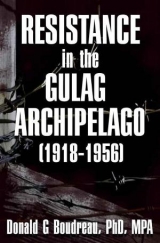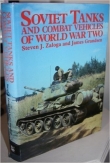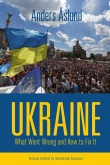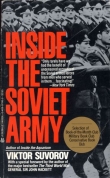
Текст книги "Resistance in the Gulag Archipelago"
Автор книги: Donald Boudreau
Жанр:
История
сообщить о нарушении
Текущая страница: 3 (всего у книги 4 страниц)
Kostoglotov proceeds on in visiting a zoo, and what do you know, the monkeys there are found to be bearing a strong resemblance to many of his former inmates; no doubt many of whom, were still behind bars (like monkeys).
They reminded him of many of his former acquaintances. In fact, he could even recognize individuals who must still be in prison somewhere. [35]35
Cf. Solzhenitsyn, “Cancer”, at 506.
[Закрыть]
Alexander Solzhenitsyn continues exploring through the character of Kostoglotov, the fragility of the human (animal) condition and its relation to rational freedom in the world. The analogy created here is, in the writer’s view, an act of unabashed genius.
The most confusing thing about the imprisoned animals was that even supposing Oleg took their side and had the power, he would still not want to break into the cages and liberate them. This was because, deprived of their home surroundings, they had lost the idea of rational freedom. It would only make things harder for them, suddenly to set them free. [36]36
Cf. Solzhenitsyn, “Cancer”, at 505.
[Закрыть]
It would be incomplete if the “evil prince” and “the hunters” who murdered Beetle were not present as the novel climaxes. Their presence is, as subtle here, as the consequences of Stalinism themselves.
He went there. The cage was empty but it had the usual notice reading “Macaque Rhesus.” He had hurriedly scrawled and nailed to the plywood. It said: “The little monkey that used to live here was blinded because of the senseless security of one of the visitors. An evil man threw tobacco into the Macaque Rhesus’ eyes. Oleg was struck dumb. Up to then he had been strolling along, smiling with known condescension, but now he felt like yelling and roaring across the whole zoo, as though the tobacco had been thrown into his own eyes, “Why?” “Thrown just like that! Why! It’s senseless! Why?” What went straight to his heart was the childish simplicity with which it was written. This unknown man, who had already made a safe getaway, was not described as “anti-humanist” or “an agent of American imperialism”; all it said was that he was evil. This was what was so striking: how could this man simply be “evil”? Children, do not grow up to be evil! Children, do not destroy defenseless creatures! [37]37
Cf. Solzhenitsyn, “Cancer”, at 506.
[Закрыть]
Kostoglotov does not linger long after the zoo. He now begins the long process of acclimating himself to rational freedom once again. He had survived whereby the others had not.
He hadn’t even died of cancer. And now his exile was cracking like an eggshell. He remembered the komendant advising him to get married. They’d all be giving him advice like that soon. It was good to lie down. Good. The trains shuddered and moved forward. It was that only in his heart, or his soul, somewhere in his chest, in the deepest seat of his emotion, he was seized with anguish. He twisted his body and lay face down on his greatcoat, shut his eyes and thrust his face into the duffel bag, spiky with loaves. The train went on and Kostoglotov’s boots dangled over the corridor like a dead man’s. An evil man threw tobacco in the Macaque Rhesus’s eyes. Just like that. [38]38
Cf. Solzhenitsyn, “Cancer”, at 532.
[Закрыть]
With the question of evil and good fathomed by Alexander Solzhenitsyn, how can Russian men and women rectify the horrendous predicament? What does he offer up to us as a possible remedy?
(Schulubin): We have to show the world a society in which all relationships, fundamental principles and laws flow directly from ethics, and from them alone. Ethical demands must determine all considerations: how to bring up children, what to train them for, to what end the work of grownups should be directed, and how their leisure should be occupied. As for scientific research, it should only be conducted where it doesn’t damage morality, in the first instance where
It doesn’t change the researchers themselves. The same should apply to foreign policy. Whenever the question of frontiers arises, we should think of not of how much richer or stronger this or that course of action will make us or how it will raise our prestige. We should consider one criterion only: how far is it ethical? “Yes, but that’s hardly possible, is it-not for another two hundred years?” Kostoglotov frowned. [39]39
Cf. Solzhenitsyn, “Cancer”, at 442.
[Закрыть]
In consideration of the fact that torture has now (1974) become a state institution in more than thirty countries (including, in the Soviet Union), my prescriptive analysis here lacks Utopian theory. [40]40
The New York Times, Week in Review, August 4, 1974, p. 5.
[Закрыть]We now have in these countries a rule of pain that is being carried out by technicians, scientists, parliamentary officials, judges and cabinet ministers. The only distant hope envisioned here is the international enforcement of the United Nations’ Universal Declaration of Human Rights. Unfortunately, this has not been made manifest to date (1974, at the time of this writing).
In summary, I would like to reiterate that the focus of this paper has been on resistance in the Gulag archipelago, as opposed to a blanket condemnation of Stalinism. The noted Soviet historian, Roy A. Medvedev (1972) synthesizes the weight of the evidence.
The people became more educated and cultured, Leninist ideas penetrated everywhere. Proletarian influences reached the petty bourgeois masses; the authority of the Communist Party increased markedly. But at the same time the masses were educated in another, unproleterian spirit of blind subjection to the authority of the chiefs, above all Stalin. [41]41
Cf. Medvedev, at 537.
[Закрыть]
Conclusively, the Soviet Union is not so much to be reproached for taking authoritarian measures considering the mitigating circumstances. Almost all systems of law contain martial law for such occurrences. Yet, Stalinism was an extreme phenomenon in that despite its rhetoric to the contrary, martial law went undistinguished. This is unforgiving and invites reproachment. And, in The Mass Psychology Of Fascism, Wilhelm Reich (1970) the Austrian-American psychiatrist and psychoanalyst, eloquently brings the relevant issues to light. He finally concludes that
[T]he responsibility for this failure falls heavily on the working masses of people themselves. Unless they learn to rid themselves of authoritarian forms of government. No one can help them; they and they alone are responsible. This and this alone is true and affords hope. The Soviet government cannot be reproached for reverting to authoritarian and moralistic methods of control; it had no other choice if it did not want to endanger everything. It is to be reproached for neglecting self-government, for blocking its future development, and for not creating its preconditions. The Soviet government is to be reproached for forgetting that the state has to wither away. IT is to be reproached for neglecting to make the failure of self-government and self-regulation of the masses the point of departure for new and greater efforts; for trying to make the world believe that, despite everything, this self-regulation was developing and that “complete socialism” and “genuine democracy” prevailed. [42]42
Wilhelm Reich, The Mass Psychology of Fascism, pp. 299-300.
[Закрыть]
AUTHOR’S NOTE
IN RE THE TRADITION OF FREEDOM VS. TRADITION OF SOCIETY
The basic principle of a free society is that no single individual can come to know absolute truth. Thus, it is believed that the interchange of different ideas will serve to facilitate the maximum attainment of relative, approximate truth. This position is untenable to the Soviet Union with its long tradition of associating freedom with total chaos. The operative ideals of our root orientation in the West are diametrically opposed to those made manifest throughout Stalinism.
The evidence at hand dictates a failure to falsify the hypothesis. In the Gulag archipelago, there existed no channels representing the equities and grievances of the population at large, through which injured parties would have been permitted to seek recourse without threat of governmental retaliation. There existed neither any governmental implementation nor public support of a criminal justice system acting in the interests of Russian citizens. Thus, dissent was blatantly suffocated by Joseph Stalin’s draconic measures.
Dissent was weakened, in that when it did sporadically arise, there was tragically no one in a governmental position who was receptive and willing to act. Let us recognize the genius of our Founding Fathers in the United States, who by adopting the separation of powers – rejected Draconian dictatorships that would serve to jettison the free marketplace of goods, services, and ideas.
Hunger strikes proved ineffective as the government went about implementing coercive counteracting tactics (i.e., patience and deception on behalf of the prison administration, coercive feeding, directives telling the prisoners to go ahead and starve themselves to death-government assuming no responsibility therefore). As D.M. Sturley (1964) (16) observed, many of the peasantry class did resist Forced Collectivization. Rather than hand over their livestock to the state, peasants slaughtered and ate them and also refused to till the fields. Unfortunately, we are discussing a predominantly peasant culture faced with mass illiteracy and famine on an extensive scale. Peasants were ultimately forced into forced labor at the point of the machine-gun.
I concur wholeheartedly with Solzhenitsyn’s conviction that war crime criminals of the Stalinist era must be brought to justice through the Soviet criminal justice system. As he illustrates in The Gulag Archipelago, by 1966, eighty-six thousand Nazi criminals have been convicted on such charges in West Germany (p. 175). In the past quarter century, not one of Stalin’s accomplices has been brought to trial. These statistics, do not at all balance, with Nikita Khrushchev’s famous secret 1956 denunciation of Stalin. Unless the Soviet system recognizes and facilitates legal action with reference to these crimes against humanity, the process of extirpating the Stalinist ethos from the soil of “Holy Russia” will be drastically prolonged.
The right to life as a basic tenet of liberalism is desirable to all. Individual fulfillment is inextricably interwoven with the freedom of expression. The bell of the Gulag will continue tolling throughout the course of history.
Donald G. Boudreau
Montclair State College
Upper Montclair, New Jersey
Fall 1974
SELECTED BIBLIOGRAPHY
BOOKS
Amalrik, Andrei. Will the Soviet Union Survive Until 1984?New York: Harper and Row Publishers, 1970.
Camus, Albert. An Essay on Man in Revolt. New York: Alfred A. Knopf Pub., 1969.
Camus, Albert. Resistance, Rebellion and Death. Translated from the French and with an introduction by Justin O’Brien. New York: Alfred A. Knopf Pub., 1961.
Gasset, Jose Ortega y. The Revolt of the Masses. New York: W.W. Norton & Company, Inc., 1957.
Goldston, Robert. The Russian Revolution. Greenwich, CT: Fawcett Publications, Inc., 1966.
Grazzini, Giovanni. Solzhenitsyn: a biography. New York: Dell Publishing Co., Inc., 1974.
Hook, Sidney. Marx and the Marxists: The Ambiguous Legacy. New York: Van Nostrand Reinhold Co., 1965.
Mayer, Milton. They Thought They Were Free: The Germans 1933-45. Chicago: The University of Chicago, 1969.
Medvedev, Roy A. Let History Judge: The Origins and Consequences of Stalinism. New York: Alfred A. Knopf, 1972.
Reich, Wilhelm. The Mass Psychology of Fascism. New York: Farrar, Straus & Giroux Publishers, 1970.
Solzhenitsyn, Alexander I. The Gulag Archipelago: 1918-1956: An Experiment in Literary Investigation. Parts I-II. New York: Harper & Row Publishers, 1973.
Solzhenitsyn, Alexander I. Cancer Ward. New York: Bantam Books, 1972.
Solzhenitsyn, Alexander. The First Circle. New York: Bantam Books, 1972.
Solzhenitsyn, Alexander. Stories and Prose Poems. Translated by Michael Glenny. New York: Bantam Books, 1972.
Solzhenitsyn, Alexander. Nobel Lecture. New York: Farrar, Straus and Giroux, 1972.
Sturley, D.M. A Short History of Russia. New York: Harper & row Publishers, 1964.
Toynbee, Arnold J. Civilization on Trial. New York: Oxford University Press, 1947.
PERIODICALS
The New Republic – A Journal of Politics and the Arts
The New York Times
TimeMagazine
EsquireMagazine
SUPPLEMENTARY BIBLIOGRAPHY: ADDITIONAL, MORE CONTEMPORARY READINGS, ISSUED SUBSEQUENT TO THE 1974 WRITING OF THE INSTANT SUBJECT PAPER
Applebaum, Anne. “Stronger Than The Gulag,” [Solzhenitsyn’s writings], The Washington Post, August 5, 2008, p. A19, col. 3.
Aron, Leon. “Death and the Dictator,” Soviet History, [Reviews of Stalin a Biography by Robert Service, Belknap/Harvard University and Stalin And His Hangmen, The Tyrant and Those Who Killed For Him by Donald Rayfield, Random House], Book World, The Washington Post, Sunday April 17, 2005, p. 3.
Beichman, Arnold. “Crimes without just punishment,” The Washington Times, January 9, 1990, p. F1, col. 5.
Bozell III, L. Brent. “ ‘Circle’ of Stalinist Terror,” [Russian director Andrei Konchalovsky’s film, “The Inner Circle”] The Washington Times, February 15, 1992, p. C3, col. 4.
Cohen, Stephen F. “An Anti-Stalinist Tide Is Flowing Again,” International Herald Tribune, Opinion, February 3, 1987, p. 4.
Cohen, Stephen F. “Straining Mightily to Uproot Stalinism,” International Herald Tribune, March 11, 1987, p. 4.
Dobbs, Michael. “Inside Stalin’s ‘Marble Gulag’, Soviets Allow rare Visit to Siberian Camp for Uranium Miners,” The Washington Post, Final, October 1, 1989, p. 1, col. 2.
Dreher, Rod. “The Writer, The Pope, Tragedy Of The Half-heeded, Their words like silent Raindrops fell…’” The Free Lance-Star, Fredericksburg, Va., Opinion, [ethical and ideological similarities between John Paul II and Alexander Solzhenitsyn], August 16, 2008, p. A6, col. 1.
Finn, Peter. “Mourners Pay respects to Solzhenitsyn, Though Thousands View Writer’s Body, National Grief Isn’t Apparent in Russia,” The Washington Post, the World, August 6, 2008, p. A12, col. 1.
Finn, Peter. “Russia’s Heroic Literary Curmudgeon, Onetime Dissident Acclaimed Even by Those Who Disagreed With Him,” The Washington Post, August 5, 2008, p. A6.
Fitzpatrick, Sheila. Stalin’s Peasant’s, Resistance & Survival in the Russian Village after Collectivization. Oxford: Oxford University Press, 1994.
Gertz, Bill. “U.S. POWs sent to die in gulags,” [A Russian government search of Soviet secret police files has revealed that American prisoners of war were sent to die in gulag labor camps after World War II.] Washington Times, February 17, 1992, p. A1, col. 1.
Glasser, Susan B. “Gulag Survivor Wages Battle Against Oblivion,” The Washington Post, September 14, 2003, p.A20, col. 1.
Heintz, Jim. “Author Solzhenitsyn buried in Moscow,” The Free Lance-Star, Fredericksburg, Va., August 7, 2008, p. C2, col. 1.
Hiatt, Fred. Russians Seek Rosier Past, Even Revising Stalin Image,” [“Russians are romanticizing their prerevolutionary era and have even begun to question whether Joseph Stalin and his gulag were as monstrous as perestroika-era revelations suggested.”], The Washington Post, October 30, 1994, p. A31, col. 1.
Hochschild, Adam. “A Toast to Stalin’s Ghost, Why Russians Still Mourn the Bloody Yesterday,” The Washington Post, May 5, 1995, p. C1, col. 4.
Hockstader, Lee. “While Solzhenitsyn Thunders, Russian lawmakers Barely Clap, Returned Exile Issues Stern Warning On Poverty and the Abuse of Power,” the Washington Post, October 29, 1994, p. A23, col. 1,2.
Hockstader, Lee. “Stalin Shrine to Reopen-Minus Deification,’ The Washington Post, October 12, 1993, p. A14, col. 1.
Hoffman, David. “A Prophet Without Honor In Profit-Driven Russia, Solzhenitsyn Perceived as ‘Out of Touch,’ Boring,” The Washington Post, September 27, 1995, p. A26, col. 1.
Hoffman, David. “Nostalgic for Lenin, Long-Dead Leader Is Still Exalted by many Who Equate Him With the Order Russia Now Lacks,” The Washington Post, April 8, 1996, p. A16, col. 1.
Hoffman, David. “Site of 1,100 Stalinist Executions Found,” The Washington Post, July 13, 1997, p. A21, col. 1.
Hochschild, Adam. “Bibliography and Acknowledgments,” in The Unquiet Ghost, Russians Remember Stalin. New York: Viking/Penguin Books, 1994:289-293.
Jack, Andrew. “Gulag’s economic prisoners glimpse the chance of escape, Pioneering World Bank pilot scheme of assisted migration offers hope to poverty-stricken inheritors of Stalin’s artic wastes,” Financial Times, July 17, 2002, p. 1, col. 1.
Jones, Radhika. “APPRECIATION, Aleksandr Solzhenitsyn. The prophetic power and gentle touch of the man who could not be silenced,” TIME Magazine (USA), vol. 172, I ssue 7, p. 63.
Kaiser, Robert G. “Appreciation, The Giant Of Russian Literature,” the Washington Post, Va. Ed., August 5, 2008, p. C1, col. 5.
Kennicott, Philip. “The Specter Of Joe Stalin, Scholars Assess Legacy 50 Years After His Death,” The Washington Post, March 6, 2003, p. C1, col. 1.
LaFraniere, Sharon. “Russia Keeps Stalin Locked In Its Past, Decades On, Nation Has Yet to Confront Murderous Reign,” The Washington Post, Home Edition, September 24, 2002, p. A1, col. 1.
Lipman, Masha. “Russia’s search for an identity,” The Washington Post, November 3, 2009, p. A17, col. 5.
Lipman, Masha. “Reins on Remembrance, 70 Years After Stalin’s Purge, Candor has Its Limits,” The Washington Post, Va. Ed., August 22, 2007, p. A17, col. 2.
Lipman, Masha. “On a Mission For Russia,” [Solzhenitsyn], The Washington Post, August 5, 2008, p. A19, col. 5.
Litinov, Pavel. “No American Gulag,” The Washington Post, Va. Ed., June 18, 2005, p. A19, col. 4.
Lord, Lewis. “A reign of terror, a world away,” 70 Years Ago, U.S. News & World report, June 30/July 7, 2003.
Lourie, Richard. “IN MEMORIUM, The Unyielding Solzhenitsyn, A Russia scholar sums up the life and work of a 20th century master,” Book World, The Washington Post, August 10, 2008, p. 2.
Nadler, Gerald. “Solzhenitsyn will return to Russia soon, wife says,” The Washington Times, May 24, 1992, p. A13, col. 1.
Pfaff, William. “The Stalinist Damage to be Undone Is Enormous,” Opinion, International Herald Tribune, March 30, 1987, p. 4.
Remnick, David. “As Gulag Fades, Warden Is Proud of His Career, Political; Prisoners Still Endure Cruelties,” The Washington Post, April 28, 1991, p. A1, col. 1.
Remnick, David. “KGB Plot to Assassinate Solzhenitsyn Reported, Russian Tabloid Says 1971 Attempt left Dissident Burned,” [The Russian crime tabloid Top secret reports that the KGB secret police poisoned Alexander Solzhenitsyn 21 years ago in an attempt to assassinate him with the same lethal chemical used to kill Bulgarian dissident, Georgi Markov, in London in 1978,] The Washington Post, April 21, 1992, p. D1, col. 4.
Remnick, David. “Stalin’s Lethal Legacy Of Filth, 5-Year Plans, City Lies in Economic, Ecological Ruin,” The Washington Post, Final, May 21, 1991, p. A1, col. 4.
Remnick, David. “Witness to the Gulag, Soviet publication of Solzhenitsyn’s great work is an extraordinary event,” The Washington Post, July 9, 1989, p. B7, col. 1.
Rosenfeld, Stephen S. “The Hard-Liners Had It Right, And now the Soviet documents are coming out to prove it,” The Washington Post, January 20, 1995, p. A21, col. 2.
Satter, David. It Was A Long Time Ago, And It Never Really Happened Anyway: Russia and the Communist Past. New Haven, CT: Yale University Press, 2011, 400pp.
Shipler, David K. “Anatomies of a Murderer,” [reviews of Stalin In Power, The Revolution From Above, 1928-1941 by Robert C. Tucker, Stalin, The Glasnost Revelations by Walter Laquer, and Stalin’s War Against the Jews by Louis Rapoport.], The New York Times Book Review, November 18, 1990, p. 2.
Solzhenitsyn, Aleksandr. “The Relentless Cult of Novelty And How It Wrecked the Century,” The New York Times Book Review, February 7, 1993, p. 3.
Stent, Angela. “What Is To Be Done?” [Her review of Rebuilding Russia by Aleksandr Solzhenitsyn, Translated from the Russian by Alexis Klimoff, Farrar Straus and Giroux], The Washington Post, Book Review, February 16, 1992.
Sturua, Melor. “’How A Tyrant Made Us Believe In Him’” PARADE Magazine, July 28, 1991, pp.4-7.
Williams, Daniel. “The Loneliness Of The Outdated Soviet Dissident,” The Washington Post, October 15, 1997, p. A23, col. 1.
“Alexander Solzhenitsyn, He lived not by lies.” The Washington Post, [editorial], August 5, 2008, p. A18, col. 1.
“Aleksandr Solzhenitsyn Is Dead at 89,” The New York Times, nytimes.com, By The Associated Press, Obituary (Obit)-NY Times.com, August 3, 2008, Filed at 6:05p.m. ET.
“Gorbachev Faults Legacy Of Stalinism,” International Herald Tribune, [According to the leader of the Argentine Communist Party, Athos Fava, “Mr. Gorbachev said he was striving for more socialism and more democracy, which is what the people want, and we will not take one step backward.”), March 5, 1987, pp. 1,6.
“Holmodor-Famine in Soviet Ukraine, 1932-1933, 1st Commemoration of the 75th Anniversary,” An Exhibit in the Ralph J. Bunche Library, United States Department of State, Washington, DC, September 16-October 31, 2008. Washington, DC: U.S. Department of State, The Ralph J. Bunche Library, A/ISS/IPS/LIBR, Prepared by Librarians Oksana Gress, Greta Wilson, Dolores Fairbanks, 2008.
“In memory Soviet critic Alexander Solzhenitsyn dies at 89, A Literary Giant of the 20th Century,” The Washington Post, August 27, 2008, p. H1, col. 4.
“Russians May Publish 2 Solzhenitsyn Works,” International Herald Tribune, [in re Cancer Ward and The Gulag Archipelago] March 5, 1987, p. 1.
“Russian Politician Defends Stalin Election Posters,” The Wall Street Journal, November 21, 2011, 12:50 PM CET.
“Solzhenitsyn Report Denied,” [“There are no plans to publish Alexander I. Solzhenitsyn’s book “Cancer Ward” in the Soviet Union,” the Soviet Foreign Ministry spokesman, Gennadi I. Gerasimov, said Thursday.”], International Herald Tribune, March 6, 1987, p. 1.
“Stalin Is Blamed For War Errors,” Kiosk, International Herald Tribune, May 25, 1987, p. 1.
“The Time Has Now Come to reject the System Itself,” [This comment was prepared by seven dissident Soviet émigrés living in the West], International Herald Tribune, Opinion, March 24, 1987, p. 4.







